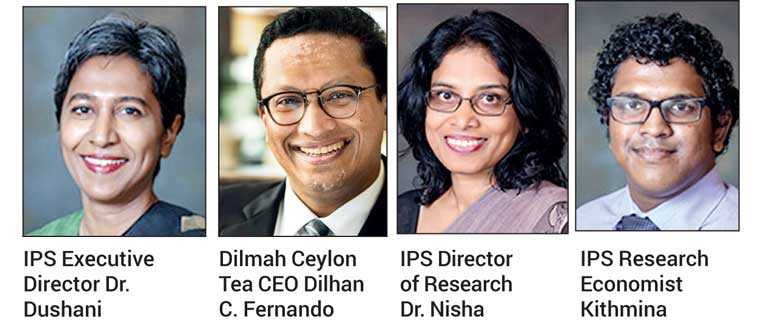Sunday Feb 22, 2026
Sunday Feb 22, 2026
Tuesday, 13 October 2020 01:52 - - {{hitsCtrl.values.hits}}

The Institute of Policy Studies of Sri Lanka (IPS) will host a webinar panel discussion in conjunction with the release of IPS’ annual flagship report ‘Sri Lanka: State of the Economy 2020’ on 15 October from 3 p.m. to 4 p.m.
The panel will feature IPS Executive Director Dr. Dushni Weerakoon, Dilmah Ceylon Tea Company CEO Dilhan C. Fernando and IPS Director of Research Dr. Nisha Arunatilake.
It will be moderated by IPS Research Economist Kithmina Hewage. Questions will be taken through Slido.com using the event code #85404.
The event will be live-streamed on the IPS Facebook Page from 2.50 p.m. onwards. IPS welcomes all those interested in learning more about ‘Pandemics and Disruptions: Reviving Sri Lanka’s Economy COVID-19 and Beyond’ to join the discussion.
The IPS’s annual flagship report ‘Sri Lanka: State of the Economy 2020’ examines the policy contours of a country that builds back better from COVID-19, under the thematic focus of ‘Pandemics and Disruptions: Reviving Sri Lanka’s Economy COVID-19 and Beyond’.
Sri Lanka’s creditable health response to COVID-19 thus far gives it an early advantage to tackle the economic fallout of the pandemic. All indicators suggest an economic contraction in 2020, albeit with a very real possibility of a sharp V-shaped recovery thereafter. Such a recovery presents both an opportunity and a challenge for Sri Lanka. The emergency stimulus measures will combat the immediate deflationary shock, but they can eventually stoke inflationary pressures and undermine a resilient recovery path.
Once the COVID-19 crisis recedes, Sri Lanka has a real opportunity to re-fashion its economic policy choices to determine the outcomes beyond COVID-19 and help greatly to mitigate risks of disruptive impacts from similar crises in the future. The disruptive effects on incomes and livelihoods, particularly in the context of large numbers in informal employment, with inadequate social protection cover, elevate the risks of widening existing income disparities in Sri Lanka.